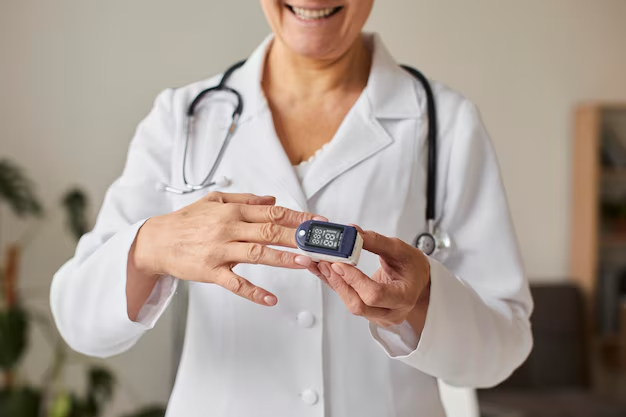Your Guide to How To Know If You Have Diabetes
What You Get:
Free Guide
Free, helpful information about Diabetes FAQ and related How To Know If You Have Diabetes topics.
Helpful Information
Get clear and easy-to-understand details about How To Know If You Have Diabetes topics and resources.
Personalized Offers
Answer a few optional questions to receive offers or information related to Diabetes FAQ. The survey is optional and not required to access your free guide.
Do You Have Diabetes? Here's How to Tell
While feeling more tired than usual or experiencing a persistent thirst, you might wonder if these symptoms hint at something more serious like diabetes. Recognizing the signs of diabetes early is crucial in managing the condition and preventing complications. Let’s delve into the signs that might indicate you have diabetes and how to approach your health confidently if these signs resonate with you.
Key Symptoms to Watch For
Identifying diabetes early can make a significant difference. Here are common symptoms associated with diabetes:
- Increased thirst and frequent urination: High blood sugar levels cause your kidneys to work harder, leading to increased urination, which, in turn, makes you feel thirstier.
- Extreme fatigue: When your body can’t process sugar effectively for energy, you might feel persistently tired.
- Unexplained weight loss: Despite eating normally, losing weight unexpectedly can occur if your body isn't getting enough energy from glucose.
- Blurry vision: Elevated blood sugar levels can cause your eye’s lenses to swell, impacting vision clarity.
- Cuts and bruises that are slow to heal: Higher glucose levels can lead to slower healing processes.
- Tingling or numbness in hands or feet: This can indicate nerve damage from high blood sugar levels over time.
If you are experiencing any of these symptoms, it might be time to consult a healthcare professional.
Getting Diagnosed
Diagnosing diabetes involves straightforward tests that look at your blood sugar levels. Common tests include:
- Fasting Blood Sugar Test: Measures the glucose level in your blood after fasting overnight.
- A1C Test: Offers a view of your average blood sugar levels over the past two to three months.
- Oral Glucose Tolerance Test: Checks your blood sugar levels before and two hours after you consume a specific sweet drink.
Consult with your healthcare provider to decide which test is appropriate if you suspect you have diabetes.
Living with Diabetes Doesn’t Have to Be Overwhelming
Once diagnosed, managing diabetes involves lifestyle changes, medication, and regular monitoring. Here’s how you can make this process smoother:
- Embrace Healthier Eating Habits: Opt for low sugar and high fiber foods.
- Stay Physically Active: Regular exercise helps control blood sugar levels.
- Monitor Regularly: Keep track of your blood sugar levels daily.
Understanding diabetes and taking control of your health can reduce risks and lead to a fulfilling life.
Unlocking Financial Support for Your Health
Managing diabetes can indeed impact your finances due to the cost of tests, medication, and monitoring devices. However, certain programs can help alleviate the financial burden:
- Government Aid Programs: Check for local and national government programs designed to support medical expenses for those with chronic conditions.
- Financial Assistance Programs: Some organizations offer financial help specifically for diabetes management, including covering part of your medicine costs.
- Educational Grants and Scholarships: For students living with diabetes, some educational grants are available that do not require repayment.
- Credit Solutions and Debt Relief Options: For those needing to manage existing debt, explore credit card solutions that support medical expenses and debt relief options tailored to healthcare debt.
Taking advantage of these resources can provide much-needed relief and allow you to focus on what truly matters—your health.
🩺 Financial Resources for Managing Diabetes:
- 💸 Medicaid and Medicare: Government insurance programs to help cover medical expenses.
- 🏢 Diabetes Self-Management Programs: Often free or low-cost programs offered by hospitals or clinics.
- 🏦 Low Interest Medical Loans: Consider these for expensive treatments.
- 🎓 Diabetes Scholarships: Special grants for individuals managing diabetes while pursuing education.
Taking proactive steps toward understanding your health can be empowering. If any signs of diabetes are present, seeking medical advice promptly can lead to early detection and management, ensuring a healthier, more balanced life.
What You Get:
Free Diabetes FAQ Guide
Free, helpful information about How To Know If You Have Diabetes and related resources.

Helpful Information
Get clear, easy-to-understand details about How To Know If You Have Diabetes topics.

Optional Personalized Offers
Answer a few optional questions to see offers or information related to Diabetes FAQ. Participation is not required to get your free guide.


